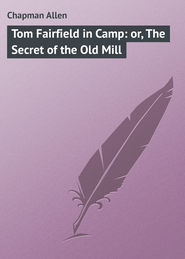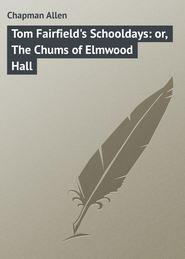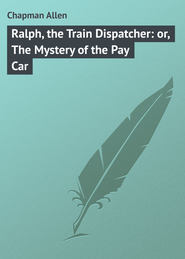По всем вопросам обращайтесь на: info@litportal.ru
(©) 2003-2024.
✖
Ralph on the Overland Express: or, The Trials and Triumphs of a Young Engineer
Настройки чтения
Размер шрифта
Высота строк
Поля
The latter had not spoken a word for over half-an-hour. He had gone about his duties in a dogged, sullen fashion that showed the permanency of the grouch with which old John Griscom had charged him. Ralph had made up his mind to leave his cab companion severely alone until he became more reasonable. However, there were some things about Fogg of which the young engineer was bound to take notice, and a new enlightenment came to Ralph’s mind as he now glanced at his helper.
Fogg had slipped clumsily on the tender plate in using the coal rake, and Ralph had marveled at this unusual lack of steadiness of footing. Then, twice he had gone out on the running board on some useless errand, fumbling about in an inexplicable way. His hot, fetid breath crossed Ralph’s face, and the latter arrived at a definite conclusion, and he was sorry for it. Fogg had been “firing up” from a secret bottle ever since they had left the Junction, and his condition was momentarily becoming more serious and alarming.
They were slowing down to a stop at a water tank as Ralph saw Fogg draw back, and under cover of the tender lift a flask to his lips. Then Fogg slipped it under the cushion of his seat as he turned to get some coal.
He dropped the shovel, coal and all, with a wild snort of rage, as turning towards the fire box door he saw Ralph reach over swiftly, grab the half empty bottle from under the cushion, and give it a fling to the road bed, where it was dashed into a thousand pieces.
Blood in his eye, uncontrollable fury in his heart, the irrational fireman, both fists uplifted, made a wild onslaught upon the young engineer.
“You impudent meddler!” he raved. “I’ll smash you!”
CHAPTER II
A SPECIAL PASSENGER
“Behave yourself,” said Ralph Fairbanks quietly.
The young engineer simply gave his furious antagonist a push with his free hand. The other hand was on duty, and Ralph’s eyes as well. He succeeded in bringing the locomotive to a stop before Fogg needed any further attention.
The fireman had toppled off his balance and went flat among the coal of the tender. Ralph did not feel at all important over so easily repelling his assailant. Fogg was in practically a helpless condition, and a child could have disturbed his unsteady footing.
With maudlin energy, however, he began to scramble to his feet. All the time he glowered at Ralph, and made dreadful threats of what he was going to do to the youth for “knocking him down.” Fogg managed to pull himself erect, but swayed about a good deal, and then observing that Ralph had the free use of both hands now and was posed on guard to meet any attack he might meditate, the irate fireman stooped and seized a big lump of coal. Ralph could hardly hope to dodge the missile, hemmed in as he was. It was poised for a vicious fling. Just as Fogg’s hand went backwards to aim the projectile, it was seized, the missile was wrested from his grasp, and a strange voice drawled out the words:
“I wouldn’t waste the company’s coal that way, if I were you.”
Ralph with some surprise and considerable interest noted the intruder, who had mounted the tender step just in time to thwart the quarrelsome designs of Lemuel Fogg. As to the fireman, he wheeled about, looked ugly, and then as the newcomer laughed squarely in his face, mumbled some incoherent remark about “two against one,” and “fixing both of them.” Then he climbed up on the tender to direct the water tank spout into place.
“What’s the row here, anyhow?” inquired the intruder, with a pleasant glance at Ralph, and leaning bodily against the fireman’s seat.
Ralph looked him over as a cool specimen, although there was nothing “cheeky” about the intruder. He showed neither the sneakiness nor the effrontery of the professional railroad beat or ride stealer, nothwithstanding the easy, natural way in which he made himself at home in the cab as though he belonged there.
“Glad you happened along,” chirped the newcomer airily. “I’ll keep you company as far as Bridgeport, I guess.”
“Will you, now?” questioned Ralph, with a dubious smile.
The lad he addressed was an open-faced, smart-looking boy. He was well dressed and intelligent, and suggested to Ralph the average college or home boy. Certainly there was nothing about him that indicated that he had to work for a living.
“My name is Clark – Marvin Clark,” continued the intruder.
Ralph nodded and awaited further disclosures.
“My father is President of the Middletown & Western Railroad,” proceeded the stranger.
Ralph did not speak. He smiled slightly, and the keen-eyed intruder noticed this and gave him a sharp look.
“Old racket, eh? Too flimsy?” he propounded with a quizzical but perfectly good-natured grin. “I suppose they play all kinds of official relationships and all that on you fellows, eh?”
“Yes,” said Ralph, “we do hear some pretty extravagant stories.”
“I suppose so,” assented the youth calling himself Marvin Clark. “Well, I don’t want to intrude, but if there’s room for myself and my credentials, I’d rather keep you company than free pass it in the parlor coach. There you are.”
As the boy spoke of “credentials,” he drew an unsealed envelope from his pocket and handed it to Ralph. The latter received it, noting that it bore in one corner the monogram of the Great Northern, with “President’s office – official business” printed under it. He withdrew the enclosure and perused it.
The sheet was a letter head of the Middletown & Western Railroad. It bore on one line in one handwriting the name “Marvin Clark,” and beneath it the words: “For identification,” in another handwriting, and the flourishing signature below “Nathaniel Clark, President.”
In typewriting beneath all this were the words: “Pass on all trains, Marvin Clark,” and below that a date and the name in writing of Mr. Robert Grant, the President of the Great Northern, unmistakably genuine. There were few employees on the road who were not familiar with that signature.
“All right,” said Ralph, refolding the sheet, re-inclosing it in the envelope, and handing it back to the stranger. “I guess that passes you anywhere on the line.”
“You see, I’ve got a sort of roaming commission,” explained young Clark buoyantly, as he got comfortably seated on the fireman’s cushion. “No particular use at school, and father wants me to learn railroading. The first step was to run down all the lines and pick up all the information I could. I’ve just got to put in two months at that, and then report to family headquarters my store of practical knowledge. See here.”
Marvin Clark drew a blank from his pocket. Some thirty of its pages he showed to Ralph were filled with memoranda. Thus: “Aug. 22, cattle freight, Upton to Dover. O. K. Simpson, Conductor.” There followed like items, all signed, forming a link of evidence that the boy had been a passenger on all kinds of rolling stock, had visited railroad shops, switch towers, water stations, in fact had inspected about every active department of several railroad lines that connected with the Middletown & Western Railroad.
“That is a pretty pleasant layout, I should say,” remarked Ralph.
“Oh, so, so,” replied Clark indifferently. “Athletics is my stronghold. If I ever get money enough – I mean if I had my own way – I’d train for expert on everything from golf to football.”
“I’m pretty strong in that direction myself,” said Ralph, “but a fellow has to hustle for something to eat.”
“I know what that means,” declared Clark. “Had to help the family by peddling papers – .”
Clark paused and flushed. Ralph wondered at the singular break his visitor had made. A diversion covered the embarassment of the young stranger and caused Ralph to momentarily forget the incident. Fogg had swung back the water spout, set the tender cover, and climbed down into the cab. Then he took the side light signals and went around to the pilot. No. 999 carried two flags there, now to be replaced by lanterns. Fogg came back to the cab rolling up the flags.
“All right,” he announced ungraciously, and hustled Clark to one side without ceremony as the latter abandoned his seat. Ralph gave the starting signal and Clark edged back in the tender out of the way.
The young engineer took a good look at his fireman. The latter was muddled, it was plain to see that, but he went about his duties with a mechanical routine born from long experience. Only once did he lurch towards Ralph and speak to him, or rather hiss out the words.
“You’ll settle with me for your impudence yet, young fellow. You’re a high and mighty, you are, breaking the rules giving your friends a free ride.”
Ralph did not reply. One anxiety kept him devoted to his work – to lose no time. A glance at the clock and schedule showed a ten minutes’ loss, but defective or experimental firing on a new locomotive had been responsible for that, and he counted on making a spurt, once beyond Plympton.
Marvin Clark knew his place, and Ralph liked him for keeping it. The young fellow watched everything going on in the cab in a shrewd, interested fashion, but he neither got in the way of the cross-grained Fogg, nor pestered Ralph with questions.
Plympton was less than five miles ahead just as dusk began to fall. Ralph noticed that his fireman rustled about with a good deal of unnecessary activity. He would fire up to the limit, as if working off some of his vengefulness and malice. Then he went out on the running board, for no earthly reason that Ralph could see, and he made himself generally so conspicuous that young Clark leaned over and said to Ralph.
“What’s the matter with your fireman, anyhow – that is, besides that load he’s got aboard?”
“Oh, he has his cross moods, like all of us, I suppose,” explained Ralph, with affected indifference.
“I wouldn’t take him for a very pleasant comrade at any time,” observed Clark. “It’s a wonder he don’t take a tumble. There he is, hitching around to the pilot. What for, I wonder?”
Ralph was not paying much attention to what the cab passenger was saying. He had made up five minutes, and his quick mind was now planning how he would gain five more, and then double that, to Plympton and beyond it.
He gave the whistle for Plympton, as, shooting a curve, No. 999 drove a clattering pace down the grade with the lights of the station not a quarter-of-a-mile away. They were set for clear tracks, as they should be. Ralph gave the lever a hitch for a rattling dash on ten miles of clear running. Then fairly up to the first station semaphore, he broke out with a cry so sharp and dismayed that young Clark echoed it in questioning excitement.
“The siding!” cried Ralph, with a jerk of the lever – “what’s the meaning of this?”
“Say!” echoed Clark, in a startled tone, “that’s quick and queer!”











